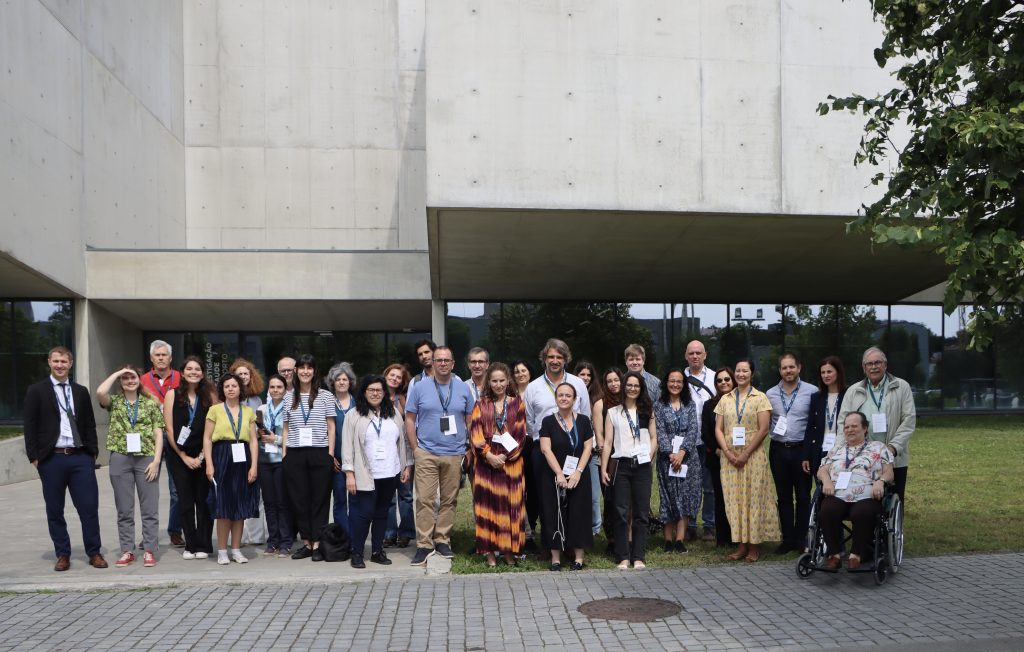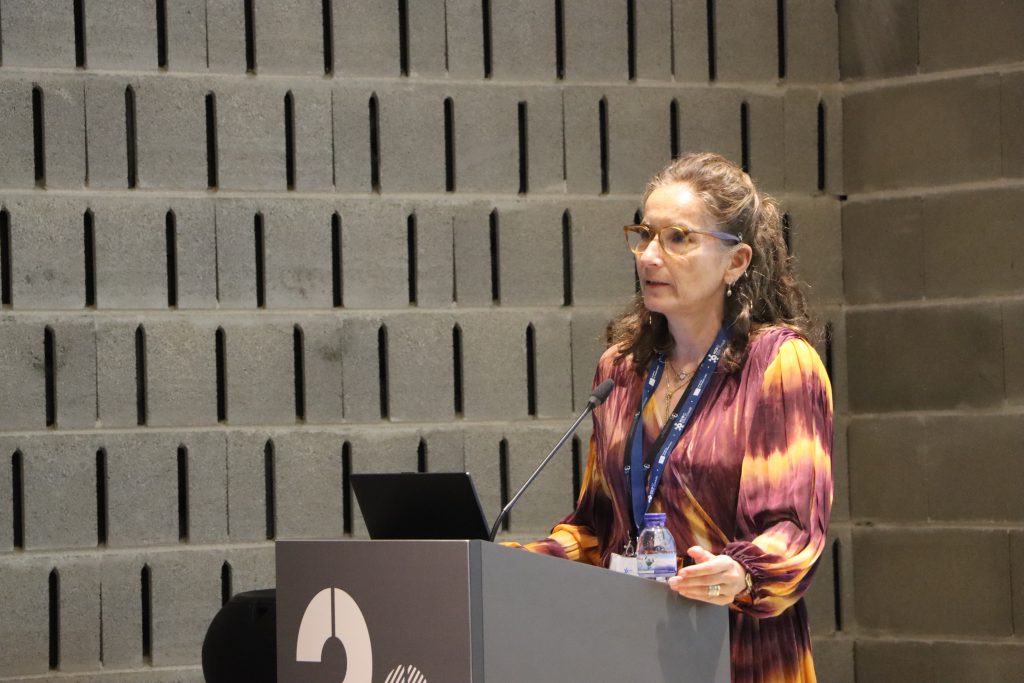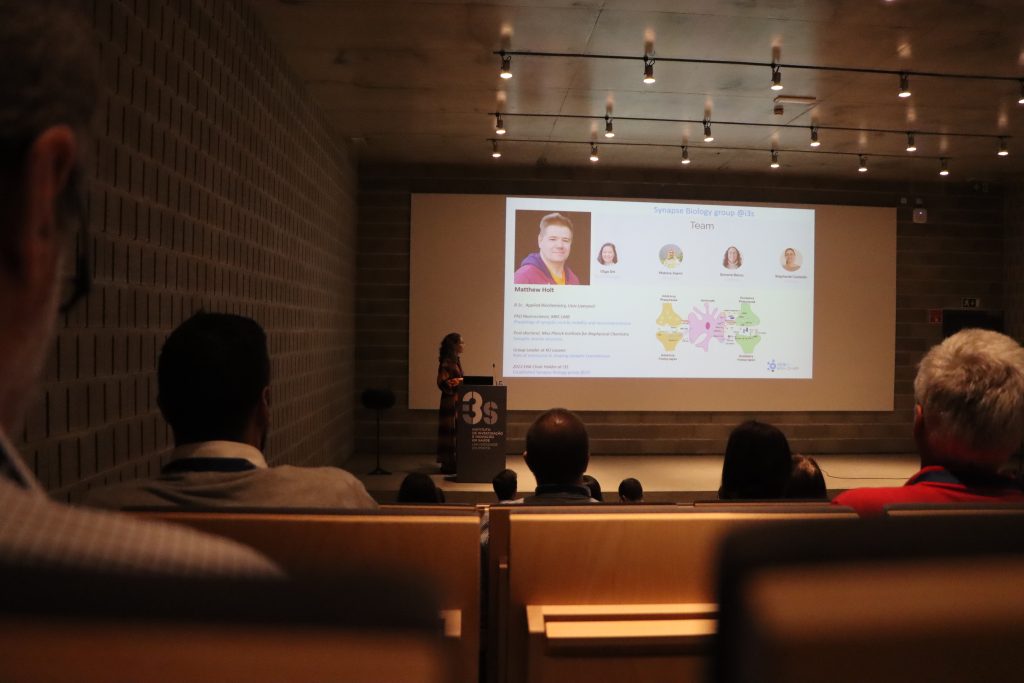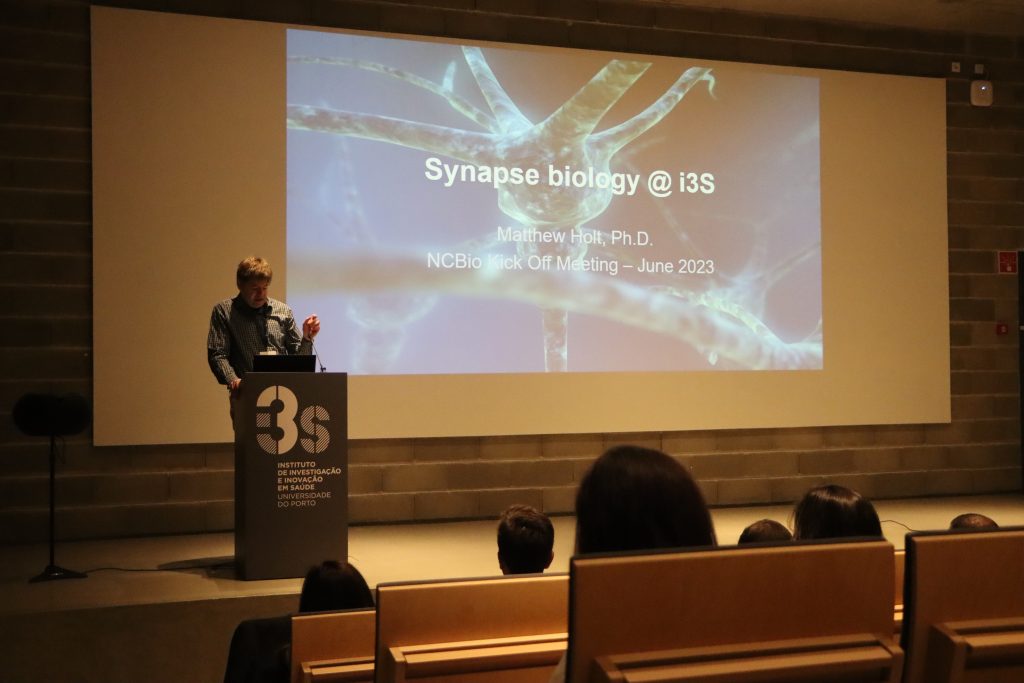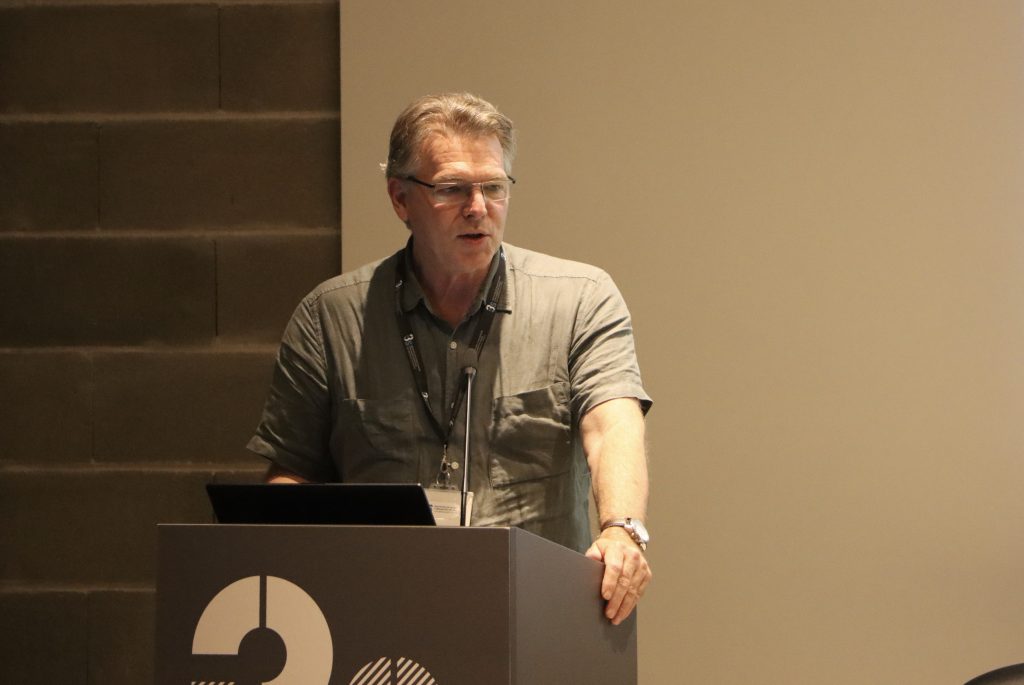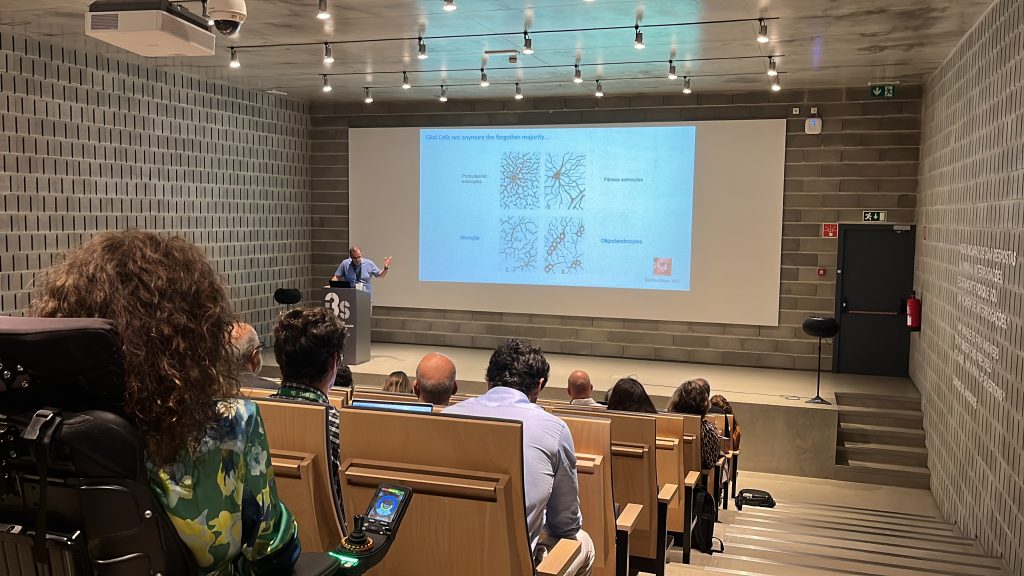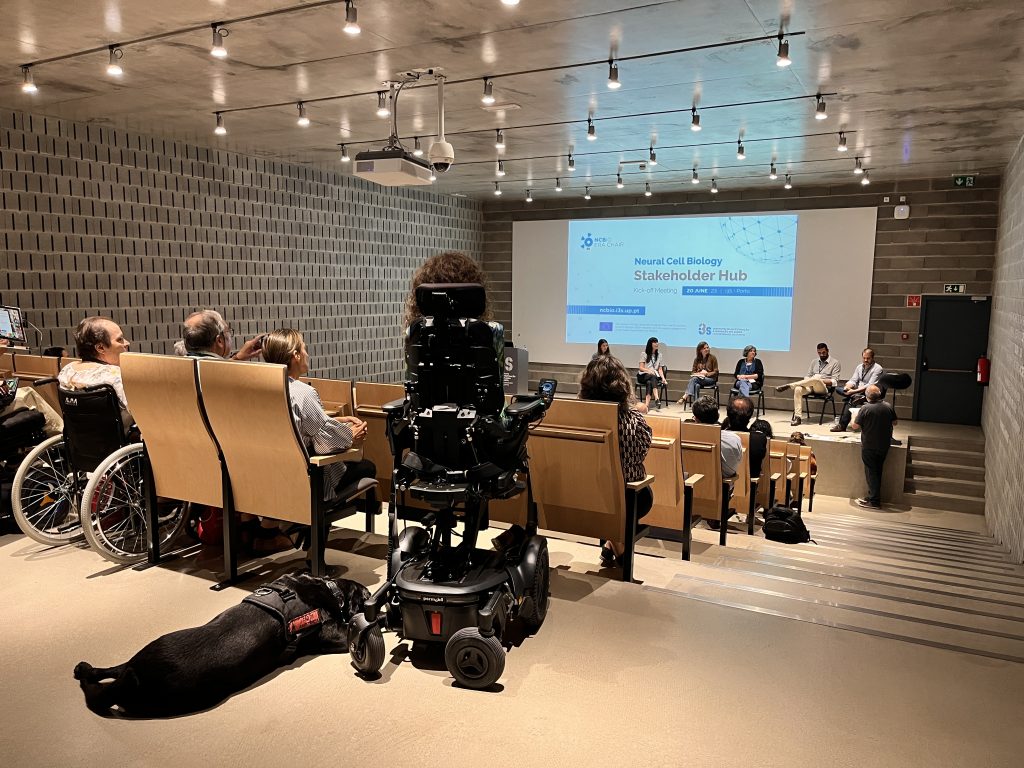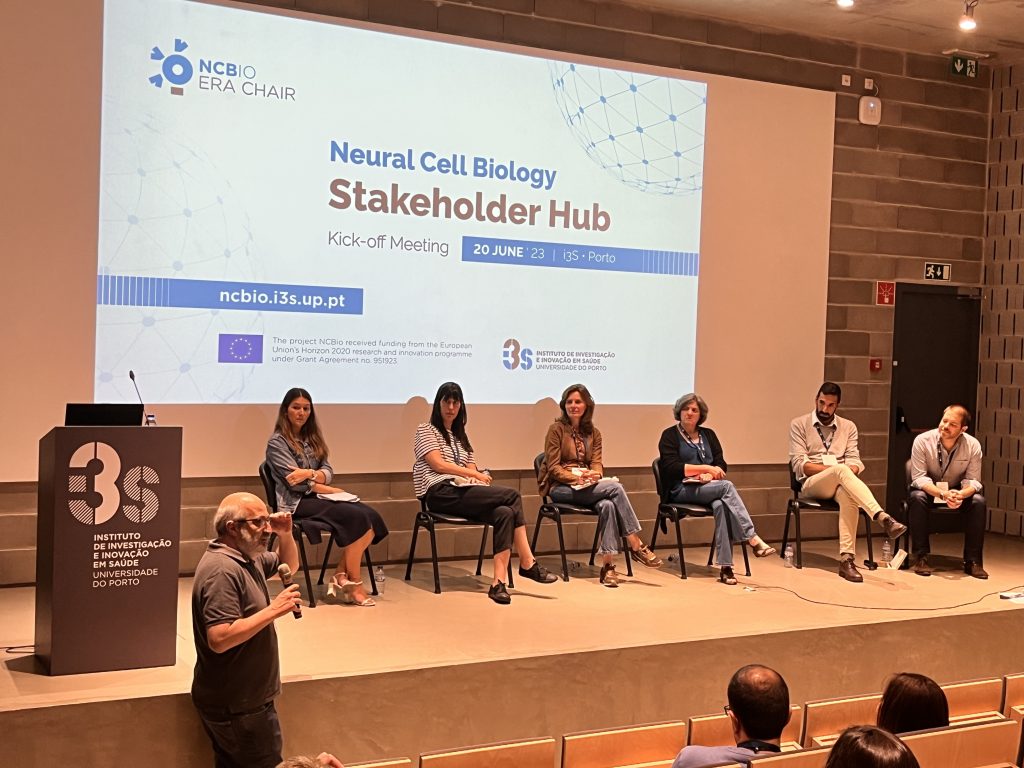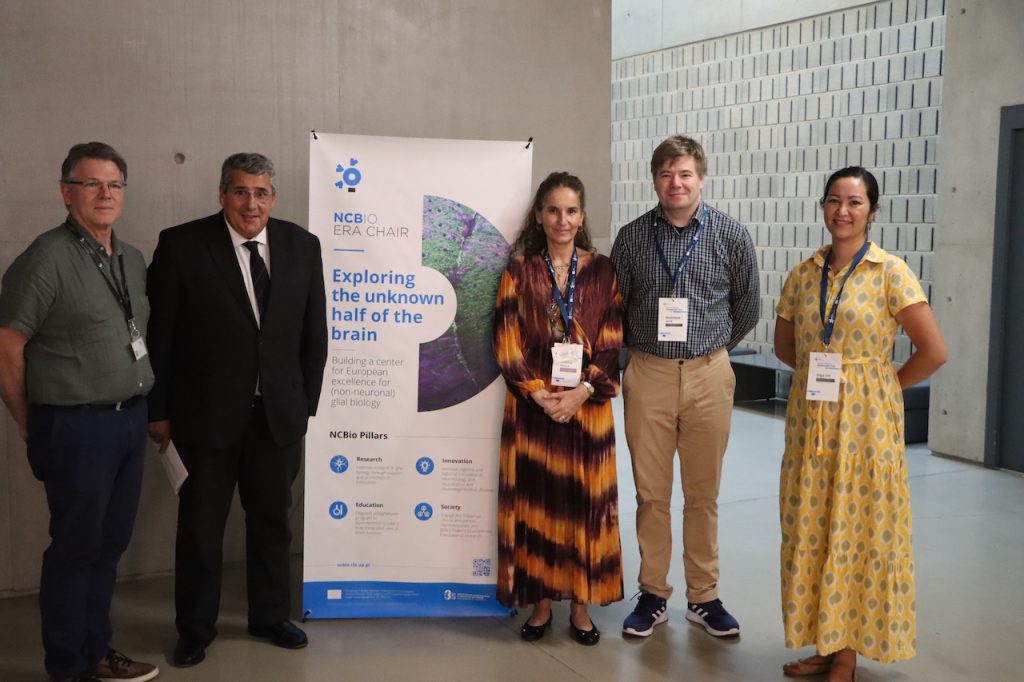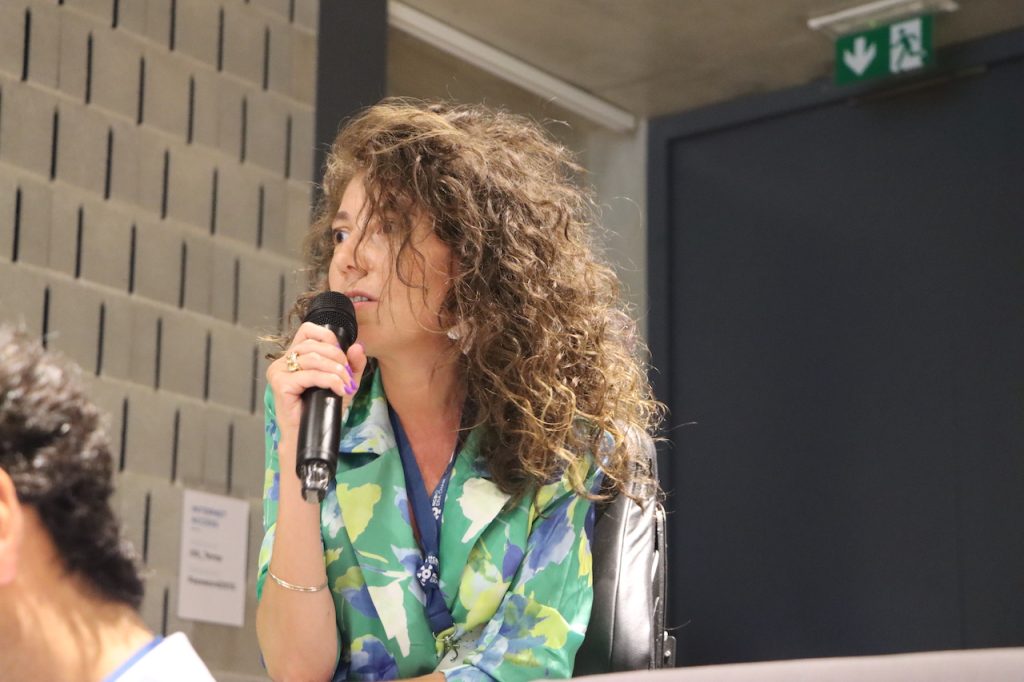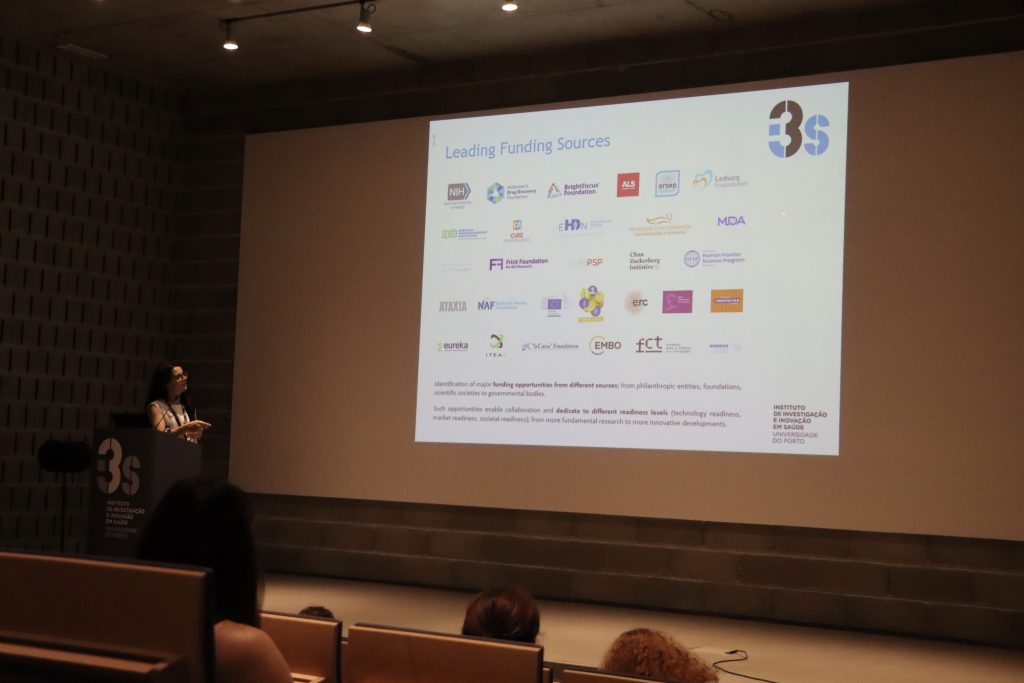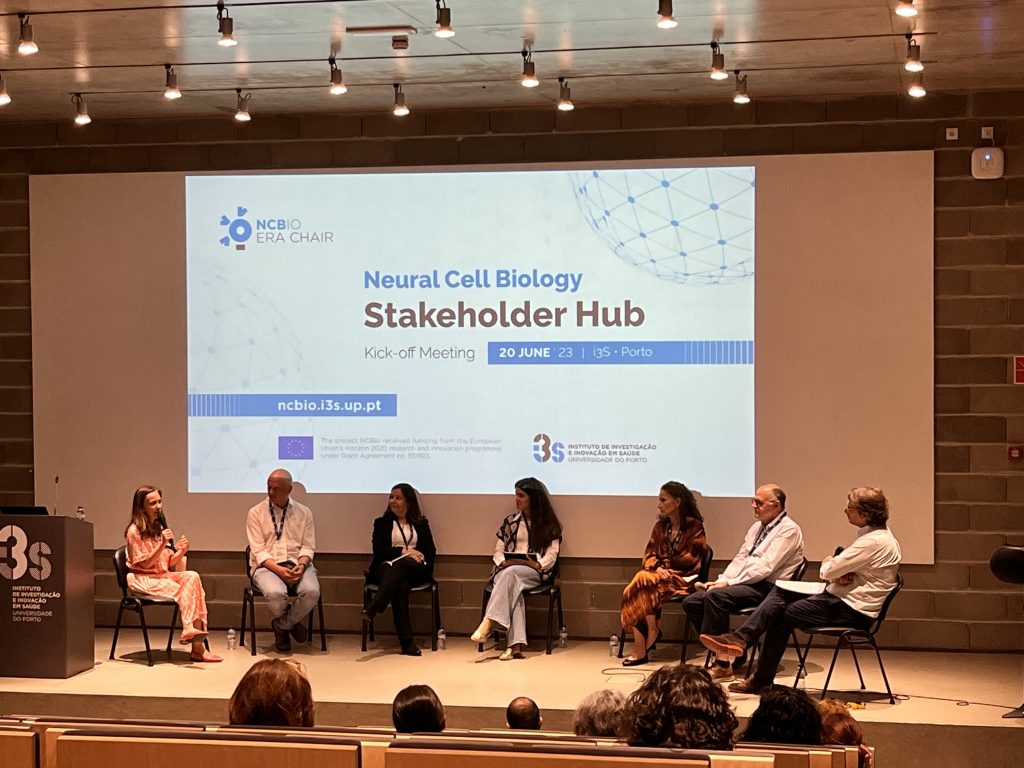Last June 20th we invited all stakeholders who supported the ERA Chair candidacy to the official launch of the NCBio Stakeholder Hub.
Dr. Mónica Sousa—Project Coordinator and Director of IBMC—officially opened the meeting by introducing the NCBio project and the ERA Chair Holder, Dr. Matthew Holt and his Team.
In Session I “Research and Clinics”, our aim was to highlight the science being done at the fundamental and clinical levels. We started by highlighting the vital role of academic-driven research as a driver for understanding human life, health and wellbeing. We counted on Dr. Holt of the Synapse Biology group to talk about why investigating synapse formation is important to prevent synapse loss in Alzheimer’s disease, multiple sclerosis, or amyotrophic lateral sclerosis. We invited Dr. Isabel Silveira, group leader of the Genetics of Cognitive Dysfunction group to talk about hereditary brain diseases like spinocerebellar ataxias and how they contributed to the genetic diagnosis of patients and families by identifying two mutant genes. We invited Dr. João Relvas, group leader of the Glial Cell Biology group to talk about demyelinating diseases and how they are developing a biosensor to measure biomarkers for multiple sclerosis. We invited Dr. Ana Paula Pêgo, group leader of the NanoBiomaterials for Targeted Therapies crossing the blood-brain barrier in neurodegenerative diseases. Other group leaders or senior scientists of the PNND were also present and we plan to showcase their work in future hub meetings.
We then continued the session by highlighting clinical research being performed at the hospitals CHUSJ, CHUdSA and CGPP. The CHUSJ was represented by Dr. Elsa Azevedo, who is the head of the neurology department. Dr. Azevedo gave a brief summary of ongoing research lines that might be of interest to the other stakeholders. The CHSUJ was represented by Dr. Ricardo Taipa, who is a neurologist and neuropathologist. Dr. Taipa presented the Portuguese Brain Bank—of which he is the executive coordinator—as a cornerstone for translational research and invited basic neuroscience researchers of the i3S to benefit from this valuable resource in the form of collaboration with the CHUdSA. Finally, the CGPP was represented by Dr. João Parente Freixo, who is the clinical director and medical geneticist. Dr. Freixo introduced the CGPP diagnostic platform as a success story resulting from translational research performed at the IBMC/i3S. He highlighted its biobank containing patient samples for many neurological diseases and its digital database for disease-related gene variants of over 12,000 fully sequenced patient exomes to the availability of all stakeholders.
Following the pitch presentations, we put the patients in the spotlight and gave them the stage to hear about what they want to see more from research and what they feel it has missed in the field of neurologic and neurodegenerative diseases. This occurred in the form of the round table “Bridging Clinical and Patient Needs” moderated by Dr. Júlio Borlido Santos, the Coordinator of the Communication Unit and WP Leader.
Session I Research and Clinics
In Session II “Towards Innovation and Entrepreneurship”, the first question we asked was “Why do we need funding schemes?”. Funding schemes fuel academic research and they are often determined in response to a specific health emergency (e.g., COVID-19) or to tackle diseases with high demographic incidence and socioeconomic impact, including neurologic and neurodegenerative diseases. Funding schemes govern research activity and this often reflects what the pharma companies are invested in as well. Therefore, we invited Dr. Catarina Neves, who is the coordinator of the Research Funding Office/International Programmes at i3S to give a comprehensive list of research funders and programs customized to the hub’s profile. We next asked “How can a researcher/clinician build innovation from translational research?”. To help us answer this question, we invited Dr. Bárbara Macedo, who is a team member of the Knowledge Transfer Office at i3S. Dr. Macedo focused on funding programs that accelerate innovation and support the business development of spin-off/start-up companies. From here, we asked “Where can we get the funds to invest in our start-up/spin-off company?”. We counted on Dr. Ricardo Perdigão Henriques, the CEO of Bionova Capital, who gave tips on how to attract investors to fund spin-off/start-up companies. We decided it was important to hear first-hand experience of a young, start-up company that has been looking to establish itself in the health market. For this, we invited Dr. James Dooley, co-founder and CEO of Aila Biotech (where Dr. Holt is also co-founder). Dr. Dooley highlighted the importance of teaming up with clinicians as Aila evolves to pre-clinical trials and the “do’s and don’ts” that group leaders and clinicians should learn when moving to business development. Finally, “How can we enter the clinical trials pipeline?”. For this, we invited BlueClinical, a Portuguese, privately owned independent full-service CRO focused on early-stage clinical studies in healthy subjects and patients. BlueClinical was represented by its Scientific Director, Dr. Francisco Pimentel who identified current barriers to entrepreneurship and innovation in healthcare and how the concept of real-world evidence should be integrated into (phase I) clinical trials.
Session II Towards Innovation and Entrepreneurship
One important but insufficiently discussed problem is the disconnect between most academic research and the needs of the pharma industry. Therefore, as a concluding topic of our event, we asked “How we can get the industry more engaged with academic research to facilitate the sharing of resources and the ability to use academic knowledge to solve real-world problems in industry?”. For this we organized the round table “Lost in Translation: Challenges in Translational Neurosciences”, moderated by Dr. André Albergaria, coordinator of the Translational Research & Industry Partnerships Office of the i3S. We invited the directors of the IBMC, Novartis Portugal, BlueClinical and Health Cluster Portugal to share their take on what pharma needs to see in academic research to get more involved.
The event was officially closed by the President of the Norte Portugal Regional Coordination and Development Commission, Prof. Dr. António Cunha.
